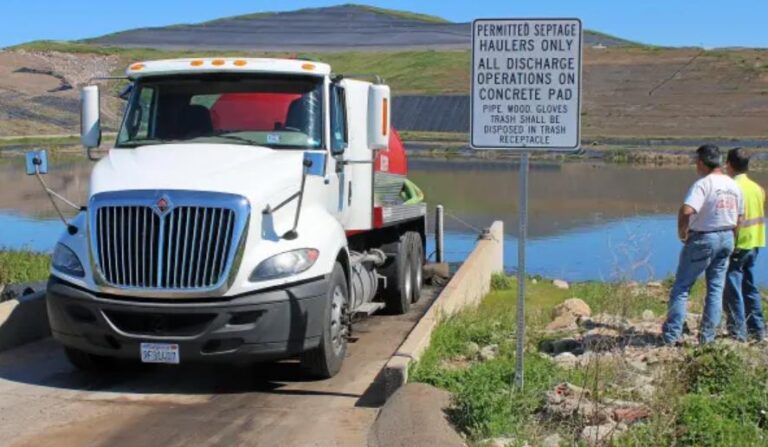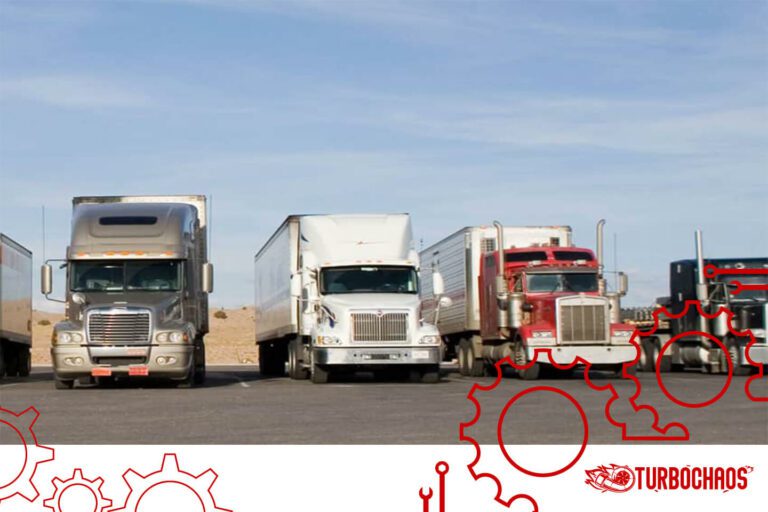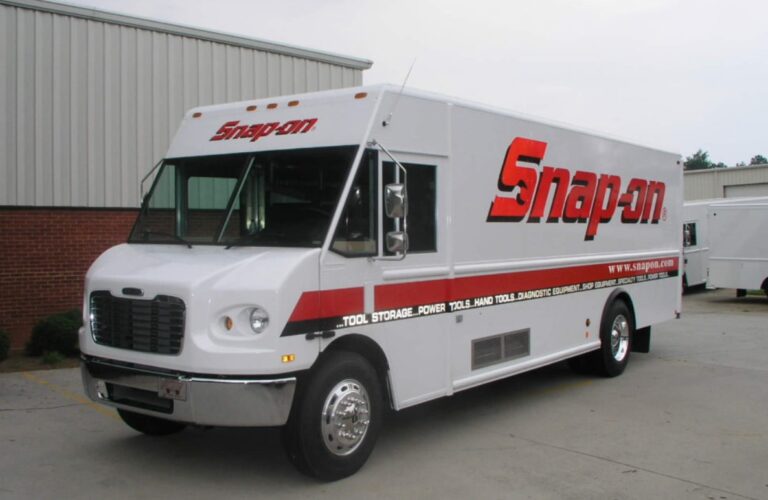How Do I Register My Tow Truck In Texas? Step By Step Guide
This article explains the various licensing kinds and covers How Do I Register My Tow Truck In Texas? You can apply for one of three license classifications to drive a tow truck in Texas.
Tow truck operators in Texas have a choice of licenses based on the vehicles they wish to drive and the help they wish to provide to their customers. You may minimize the resources you invest in this career by understanding the application procedure and obtaining the right certification.
Table of Contents
How Do I Register My Tow Truck In Texas?
Tow truck operators must register their vehicles in Texas to use them legally throughout the state. Understanding the registration process is essential whether you’re establishing a new tow truck business or expanding your fleet of tow trucks.
You may successfully register your tow truck in Texas by following the instructions in this detailed guide, ensuring that you comply with all applicable regulations.

Obtain A Commercial Driver’s License (CDL)
You must have a current Commercial Driver’s License (CDL) to drive a tow truck in Texas. Depending on the tow truck’s weight rating and the towing you intend to conduct, you might require a Class A, B, or C CDL. Learn more about the needs and procedure for getting a CDL by visiting the Texas Department of Public Safety (DPS) website.
How To Get Insurance Coverage?
Before registering your tow truck, having the insurance you need might be best. Tow truck drivers in Texas are required by law to have specific types of insurance, such as cargo insurance, liability insurance, and on-hook towing coverage. Get in touch with insurance firms that specialize in business car insurance to make sure you have the right amount of coverage.
Vehicle Inspections In Their Entirety
Your tow truck has to clear a safety inspection conducted by an authorized Texas Department of Public Safety (DPS) inspector before it can be registered. To make sure your tow truck complies with all safety regulations, including having the right lighting, brakes, tires, and other crucial components, schedule a check at an approved inspection station.
Gather Required Documents
Obtain the required paperwork, which normally includes the following, to register your tow vehicle.
- Title to the car or lease contract as proof of ownership.
- Evidence of insurance Gives a copy of your insurance policy that satisfies the needs of the state.
- Identification: Bring your identification card or driver’s license.
- Inspection report: show the licensed DPS inspector’s safety inspection report.
Visit A Local County Tax Office
Bring all the necessary paperwork to the county tax office in your area. See the Texas Department of Motor Vehicles (DMV) website to locate the location closest to you. Send in the required paperwork and pay the registration fees, which change based on the tow truck’s weight and configuration.
Gain Access To Your Registration
You will get your tow truck registration, license plates, and stickers after finishing the registration process and paying the necessary payments. As instructed by the DMV, attach the license plates and stickers to your car.
Maintain Compliance
After registering your tow truck, be sure you follow all Texas laws. This includes maintaining appropriate coverage for your car, timely registration renewal, and adherence to all operational and safety regulations.
How To Establish A Towing Business In Texas?

Create A Business Plan
Your towing company is similar to other businesses needing a plan. In your business plan, you will write about your goals and targets and how you plan to reach them. It will also guide you through the difficult corporate environment. Include these in your business plan:
Initial And Ongoing Expenses
Starting a towing company might be a fantastic way to make money. However, it’s crucial to understand the beginning and continuing costs before you begin.
Market Segmentation And Promotional Tactics
To start a removal service, it would help if you knew who you were going after and how you did reach them.
Police departments, property owners, personal car owners, motor clubs, and auto repair shops are potential clients for tow truck operations.
Consider your pricing. Are you ready to give discounts to customers who buy from you often? What about discounted prices for students or seniors?
It’s time to start considering your marketing plan once you’ve determined your target market. How are you going to reach potential clients? Will you run a local newspaper ad or hand out flyers? Or are you going to rely on recommendations from happy customers? Whatever marketing strategy you decide on, be sure it is affordable and supports your company’s objectives.
Pricing
Pricing your services might be tricky. You must charge enough to cover costs and make a profit. You don’t want to undercut competitors. Investigating typical local prices is an excellent place to start. From there, you can set your pricing above, below, or in the center of the range.
For local tows under 10 miles, tow trucks typically charge between $80 and $130. When traveling more than 10 miles, they add $2 to $4 per mile to the minimum fee of $50. For automobiles stored in the storage area owned by your business, you may also charge an additional $20 per day in storage costs.
Select A Company Name
Choosing a name for your firm is a crucial first step in starting a towing service. Because it’s the first thing customers see, choosing a company name is important.
First, pick a name that will stick in people’s minds and is simple to pronounce. Second, you need to guarantee that the name accurately describes the caliber of your company.
Finally, avoid names that are overly general or challenging to spell. The name ought to be original. You want your business to stand out from the many others since there are so many of them. When choosing a name for your towing business, bear the following points in mind:
- Observe the Texas business naming conventions
- Keep it short, witty, and spell-check-friendly.
- Make sure federal and state trademark records are consistent.
- Check to see if the name you select is accessible as a domain name and whether you can obtain the relevant social media handles.
You can check out our naming service, where we’ll find the best name for your business if you need help finding an excellent name.
Register Your Business As A Legal Entity
The next step after selecting a name is registering your business as a legal entity. Texas has four primary business structure types: corporation, partnership, limited liability company (LLC), and sole proprietorship. Each has advantages and cons, so assessing your demands is critical before choosing one.
A sole proprietorship is a good choice if you are the only towing business owner. This structure comes with various tax benefits and is quite easy to set up. However, sole proprietorships also carry a risk of individual liability. Your assets may be in danger if your business is sued or goes into debt.
Contrary to sole proprietorships, partnerships have two or more owners. General partnerships and restricted partnerships are the two types of partnerships.
Although limited partnerships are less typical in the towing sector, they provide some liability protection for partners with modest ownership stakes and less operational involvement. Since general partnerships do not provide this safeguard, each partner is equally responsible for the obligations and debts of the company.
Limited liability companies (LLCs) combine aspects of partnerships and sole proprietorships. Although LLC owners are not personally responsible for the company’s debts and liabilities, they are subject to taxation on their portion of the earnings. LLCs give freedom in organizing ownership and control of the business and are very cheap and easy to start up.
Compared to other company forms, corporations are more difficult to start up and expensive, but they also have certain important advantages. Owners of corporations cannot be held personally accountable for the debts and liabilities of the business since corporations are different legal entities from their owners.
Additionally, corporations give you flexibility in how to set up ownership and management, and they could even provide certain tax benefits. However, compared to other company arrangements, corporations are subject to more governmental control.
Any business structure you decide on for your towing company in Texas should be discussed with a qualified business attorney to be sure it’s the right choice for your particular situation.
Register Your Business For Taxes
Any company that offers a service is required to pay taxes. The same is true for towing companies. You need to get an EIN, a special identification number issued by the IRS, in order to register your firm for taxation. Online EIN applications are available. Once you’ve received your EIN, you must register for several state and federal taxes.
Get The Insurance You Need
Texas requires more than just a few trucks and strong arms to start a tow truck business. You must have the appropriate insurance coverage in place to conduct business legally. You need to get insurance to get a permit. Liability insurance and cargo-on-hook insurance are the two primary forms of insurance that tow truck firms must have.
Liability insurance: If someone is hurt or their property is harmed while utilizing your services, this will shield you from any claims that may be made against you.
Insurance for cargo on hooks protects you against any losses when moving another vehicle in your truck.
Obtain The Licenses And Authorizations Required To Operate A Towing Service
You will require the appropriate licenses and permits to run a tow truck business in Texas. Selecting the appropriate license type is the first step in applying for a tow truck license in Texas. Drivers may tow automobiles off of highways and other public roadways if they have a consent tow license.
With the Private Property License, drivers may tow vehicles from private lands, such as parking lots and apartment buildings. The most specialized license allows for the towing of vehicles from accident scenes, and it is called the Incident Management License.
Do your homework before applying because the requirements for each sort of license vary. Once you know which license is best for you, the next step is to seek the information together and send an application to the Texas State Department of Licensing and Regulation.
After you write your application, you will have to take a writing test and a skills test. If you pass both tests, you’ll get a license to drive a tow truck.
In order to drive a tow truck that has a weight load beyond a specific limit, you also need to get an oversized vehicle permit. The prerequisites are listed here. Additionally, a Class B commercial driver’s license is required if you plan to operate Class B vehicles.
Apply For A Business Credit Card And Bank Account
You must open a business bank account before you can launch your towing business. You can track your costs more easily by keeping your personal and professional accounts separate.
You must give the bank some basic details about your firm to open a business bank account. Additionally, you’ll need to contribute a specific sum of money to the account, which will function as operational capital for your business. Once you’ve set up your account, you’ll be able to issue checks, make online payments, and collect payments from clients using credit cards.
You can ask for a business credit card after opening your bank account. Following application submission, you must submit other supporting documents, such as your business license or articles of incorporation. When your application is accepted, you can use the credit card for business costs. Doing this can improve your company’s credit and secure funding for your next endeavors.
Establish A Company Webpage
Having a website is essential in the modern digital world. You can show off your talent and earn the trust of possible customers. This will also help you get more consumers. Make sure that your website has information about your business in addition to your contact information and address.
You should also include your pricing details and the services you provide. Include some customer testimonials as well, as these may be highly effective in persuading new customers to use your services. Give your towing company the expert image it needs to flourish with a well-designed website.
Promote Your Company
Although promoting your towing company can seem difficult, a few straightforward tactics can assist you in getting started; first and foremost, you must ensure your website is search engine-friendly. Make sure to register your business on sites like Google Business and Yelp, which can attract a lot of customers.
Additionally, you can put up banners in prominent places and distribute flyers and business cards to nearby establishments. Additionally, since they frequently require towing services, it’s critical to establish relationships with neighborhood law enforcement and auto dealers. You may boost your company’s visibility and draw in new clients by adopting these actions.
Conclusion
A CDL, insurance, passing an inspection for safety, and submitting the required paperwork to your neighborhood county tax office are all necessary before you can register your tow truck in Texas. You can register your tow truck efficiently and in conformity with Texas state law by following the instructions in this detailed guide. This will enable you to register my tow truck in Texas. That concludes How Do I Register My Tow Truck In Texas?

Welcome to the exhilarating world of Matt Rex, a professional car racer turned renowned vehicle enthusiast. Immerse yourself in his captivating blog as he shares heart-pounding adventures, expert reviews, and valuable insights on cars, trucks, jets, and more. Fuel your passion for speed and discover the beauty of vehicles through Matt’s engaging stories and meticulous expertise. Join the ever-growing community of enthusiasts who find inspiration and expert advice in Matt Rex’s blog—a digital hub where the thrill of speed meets the pursuit of knowledge.





![Ford E-450 Motorhome Gas Mileage [A Complete Breakdown]](https://www.turbochaos.com/wp-content/uploads/2024/01/Ford-E-450-Motorhome-Gas-Mileage-768x637.jpg)

